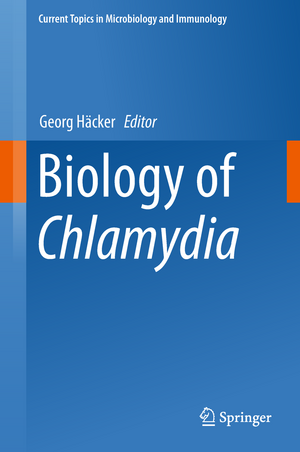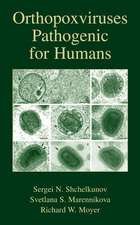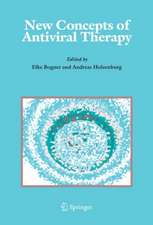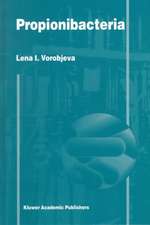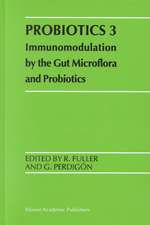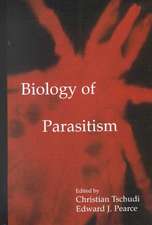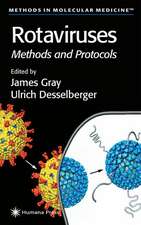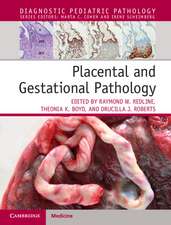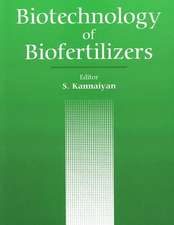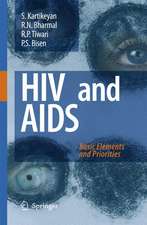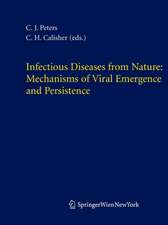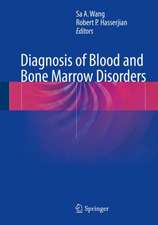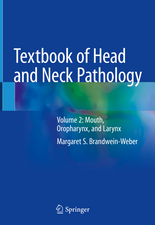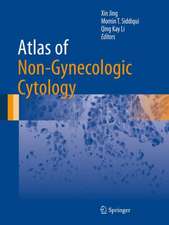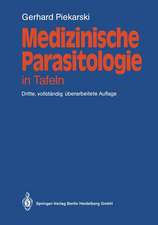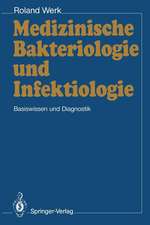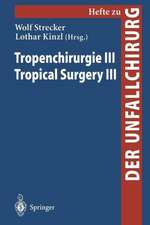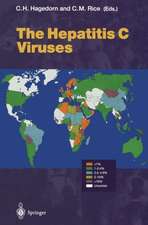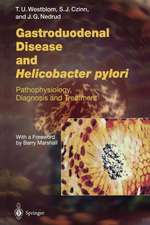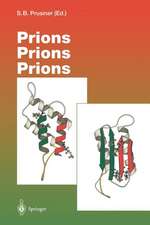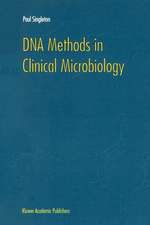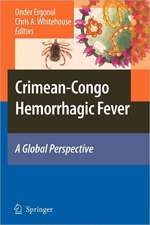Biology of Chlamydia: Current Topics in Microbiology and Immunology, cartea 412
Editat de Georg Häckeren Limba Engleză Hardback – 9 iul 2018
| Toate formatele și edițiile | Preț | Express |
|---|---|---|
| Paperback (1) | 839.36 lei 6-8 săpt. | |
| Springer International Publishing – 9 feb 2019 | 839.36 lei 6-8 săpt. | |
| Hardback (1) | 1287.90 lei 6-8 săpt. | |
| Springer International Publishing – 9 iul 2018 | 1287.90 lei 6-8 săpt. |
Din seria Current Topics in Microbiology and Immunology
- 18%
 Preț: 962.03 lei
Preț: 962.03 lei - 5%
 Preț: 1123.13 lei
Preț: 1123.13 lei - 5%
 Preț: 1085.95 lei
Preț: 1085.95 lei -
 Preț: 499.77 lei
Preț: 499.77 lei - 5%
 Preț: 967.81 lei
Preț: 967.81 lei - 18%
 Preț: 1118.62 lei
Preț: 1118.62 lei - 5%
 Preț: 717.00 lei
Preț: 717.00 lei - 5%
 Preț: 712.97 lei
Preț: 712.97 lei - 5%
 Preț: 709.51 lei
Preț: 709.51 lei - 5%
 Preț: 709.51 lei
Preț: 709.51 lei - 5%
 Preț: 721.19 lei
Preț: 721.19 lei - 5%
 Preț: 359.78 lei
Preț: 359.78 lei - 5%
 Preț: 711.88 lei
Preț: 711.88 lei - 5%
 Preț: 774.81 lei
Preț: 774.81 lei - 15%
 Preț: 640.06 lei
Preț: 640.06 lei - 5%
 Preț: 717.00 lei
Preț: 717.00 lei - 5%
 Preț: 360.34 lei
Preț: 360.34 lei - 5%
 Preț: 707.69 lei
Preț: 707.69 lei - 5%
 Preț: 717.56 lei
Preț: 717.56 lei - 5%
 Preț: 716.28 lei
Preț: 716.28 lei - 5%
 Preț: 717.20 lei
Preț: 717.20 lei - 5%
 Preț: 711.32 lei
Preț: 711.32 lei - 5%
 Preț: 711.88 lei
Preț: 711.88 lei - 5%
 Preț: 718.29 lei
Preț: 718.29 lei - 5%
 Preț: 709.51 lei
Preț: 709.51 lei - 5%
 Preț: 369.84 lei
Preț: 369.84 lei - 5%
 Preț: 712.25 lei
Preț: 712.25 lei - 5%
 Preț: 716.45 lei
Preț: 716.45 lei - 5%
 Preț: 706.60 lei
Preț: 706.60 lei - 5%
 Preț: 711.52 lei
Preț: 711.52 lei - 5%
 Preț: 713.54 lei
Preț: 713.54 lei - 5%
 Preț: 720.47 lei
Preț: 720.47 lei - 5%
 Preț: 725.42 lei
Preț: 725.42 lei - 5%
 Preț: 708.06 lei
Preț: 708.06 lei - 5%
 Preț: 713.70 lei
Preț: 713.70 lei - 5%
 Preț: 705.83 lei
Preț: 705.83 lei - 5%
 Preț: 710.96 lei
Preț: 710.96 lei - 5%
 Preț: 723.93 lei
Preț: 723.93 lei - 5%
 Preț: 707.69 lei
Preț: 707.69 lei - 5%
 Preț: 715.35 lei
Preț: 715.35 lei - 5%
 Preț: 709.87 lei
Preț: 709.87 lei - 5%
 Preț: 359.05 lei
Preț: 359.05 lei - 5%
 Preț: 374.20 lei
Preț: 374.20 lei - 15%
 Preț: 635.31 lei
Preț: 635.31 lei - 5%
 Preț: 707.86 lei
Preț: 707.86 lei - 5%
 Preț: 721.96 lei
Preț: 721.96 lei - 15%
 Preț: 632.88 lei
Preț: 632.88 lei - 15%
 Preț: 632.05 lei
Preț: 632.05 lei - 15%
 Preț: 642.83 lei
Preț: 642.83 lei
Preț: 1287.90 lei
Preț vechi: 1355.69 lei
-5% Nou
Puncte Express: 1932
Preț estimativ în valută:
246.47€ • 256.37$ • 203.48£
246.47€ • 256.37$ • 203.48£
Carte tipărită la comandă
Livrare economică 15-29 aprilie
Preluare comenzi: 021 569.72.76
Specificații
ISBN-13: 9783319712307
ISBN-10: 3319712306
Pagini: 237
Ilustrații: X, 237 p.
Dimensiuni: 155 x 235 x 21 mm
Greutate: 0.53 kg
Ediția:1st ed. 2018
Editura: Springer International Publishing
Colecția Springer
Seria Current Topics in Microbiology and Immunology
Locul publicării:Cham, Switzerland
ISBN-10: 3319712306
Pagini: 237
Ilustrații: X, 237 p.
Dimensiuni: 155 x 235 x 21 mm
Greutate: 0.53 kg
Ediția:1st ed. 2018
Editura: Springer International Publishing
Colecția Springer
Seria Current Topics in Microbiology and Immunology
Locul publicării:Cham, Switzerland
Cuprins
Cell wall biosynthesis in Chlamydia.- Genetic manipulation in Chlamydia.- Early events in the Chlamydia developmental cycle.- Subversion of the host cell cytoskeleton by Chlamydia.- Cell-autonomous host defence against Chlamydia infection.- The enigma of long-term infection: are there quiescent or 'persistent' Chlamydia?- Mechanisms of immunopathogenesis during chlamydial infections.- Protective adaptive immune response and prospects for a vaccine.- The hidden genomics of Chlamydia trachomatis.
Notă biografică
Prof. Dr. med. Georg Häcker
Universitätsklinikum Freiburg
Institut für Medizinische Mikrobiologie und Hygiene
Hermann-Herder-Str. 11
79104 Freiburg
Germany
e-mail: Georg.Haecker@uniklinik-freiburg.de
Phone: +49 761 203-6531
Universitätsklinikum Freiburg
Institut für Medizinische Mikrobiologie und Hygiene
Hermann-Herder-Str. 11
79104 Freiburg
Germany
e-mail: Georg.Haecker@uniklinik-freiburg.de
Phone: +49 761 203-6531
Textul de pe ultima copertă
The genus Chlamydia encompasses a number of species of obligate intracellular bacteria, including important human pathogens like the most common bacterial agent of sexually transmitted disease. This volume reviews current knowledge of chlamydial biology, covering the unusual structure of the bacteria – which alternate between metabolically almost inactive and fast-dividing forms. It also discusses the ways in which Chlamydia manipulates the host cytoskeleton and subverts the host cell’s defence, and illustrates how genomics have begun to uncover the diversity and complexity of chlamydial strains that look very similar but may cause distinct forms of disease. Further, it describes how techniques are now finally being established that can genetically modify Chlamydia, and discusses why such modification is still very difficult and what progress we can expect. Lastly, it presents our current understanding of chlamydial disease: what do we know about chronic infections, what are the mechanisms of inflammatory damage, and what are the prospects of a vaccine? Written be specialists in these various areas, the book is a valuable work of reference for students and scientists with an interest in the molecular, cellular and immunobiology of these fascinating bacteria.
Caracteristici
Discusses the question of long-term, persistent Chlamydia infection Provides new insights into chlamydial host adaptation Illustrates the complex mechanisms that determine immune recognition, immunopathology and potentially anti-infective protection
